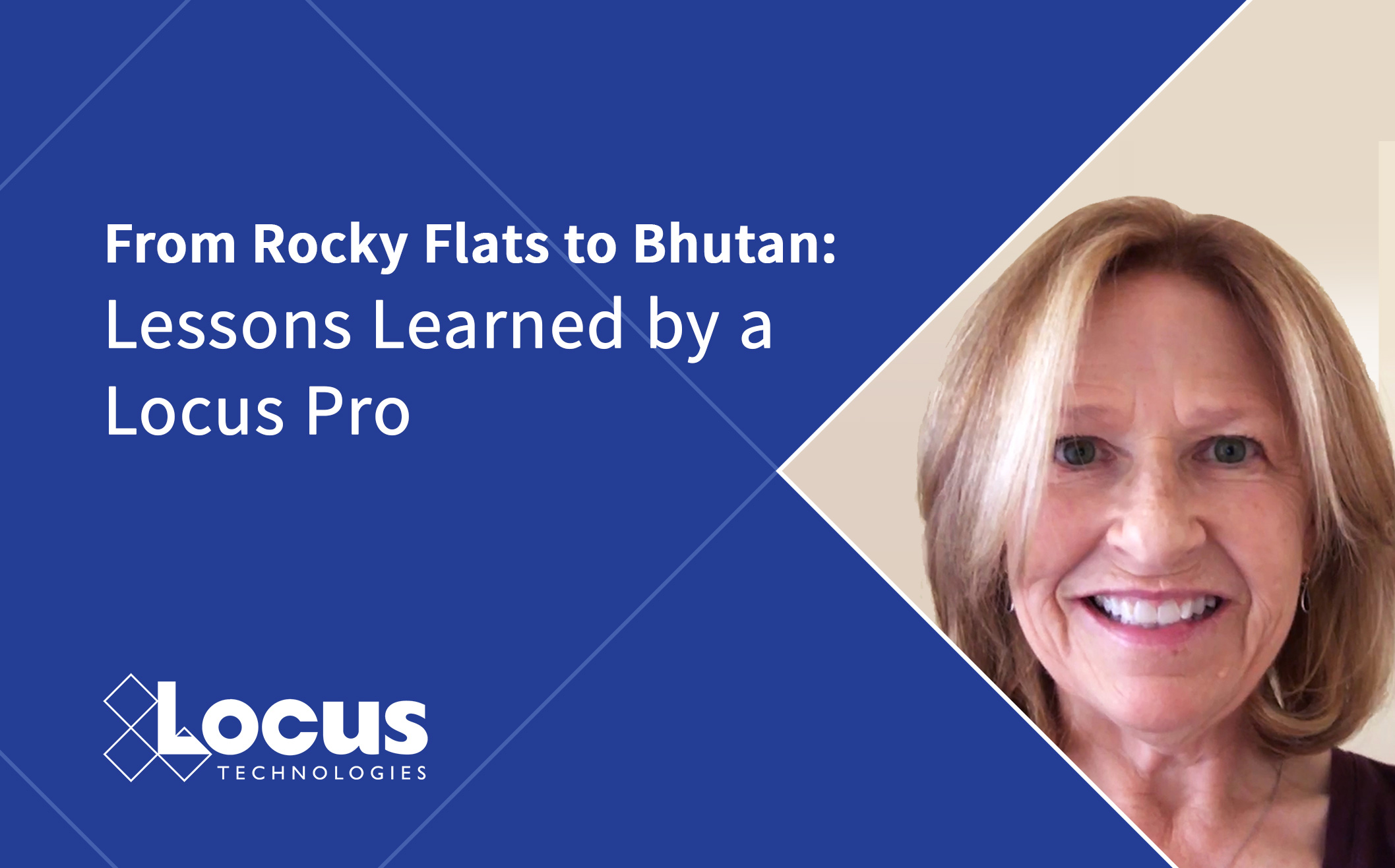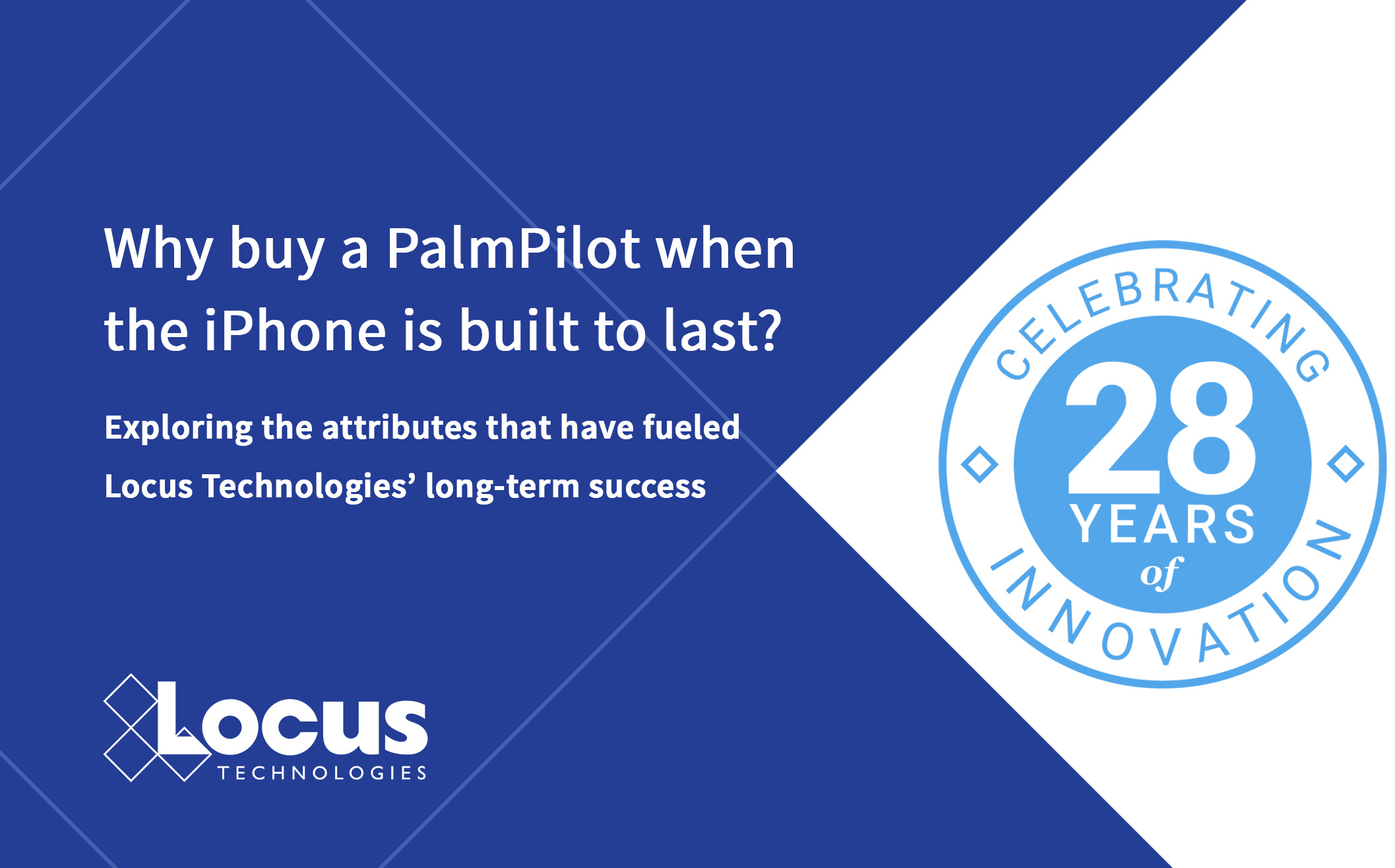
Picture an urban waterway on fire. That exact image inspired Marian Carr to pursue an environmental career. Having seen the infamous photo of Cleveland’s flaming Cuyahoga River, Marian enrolled in UC Berkeley to get her B.S. in Political Economy of Natural Resources and then later earned her M.S. in Environmental Science from Washington State University. With her professional passions ignited, she embarked on a journey to help industry and nature coexist. It was clear from the outset that data and technology would be the linchpin.
A foundation in environmental consulting
In the 80s, Marian began her career in the environmental consulting field, working on projects ranging from EPA Superfund clean-up sites to environmental compliance audits and risk assessments. While site owners and stakeholders were collecting thousands of data points to influence operational decisions, compliance, and remediation plans, their records sat siloed and unsecure on individuals’ computers or clipboards. You see, in those days, “the cloud” was just a cloud and purpose-built environmental software didn’t exist.
Across every site, Marian witnessed the burden and the unrealized potential posed by vast amounts of siloed environmental data. With limited access to data and calculations, it was hard for anyone to examine trends in emissions, discharges, waste, and sampling data. Conversely, centralizing that data could yield tremendous insights — empowering industry to efficiently operate within the known limits of what nature could weather.
Harnessing the power of data
Marian became a key team member at the Department of Energy Rocky Flats CERCLA/RCRA site in Colorado, which was one of the most significant and challenging nuclear weapons plant cleanups to date. Her directive was to find and preserve the environmental data that would be needed for the site’s closure and the subsequent monitoring of plutonium and other radionuclides. As part of that enormous undertaking, she collaborated on the development of environmental information websites for Rocky Flats and the community. The website centralized vast amounts of data, simultaneously securing it and making it accessible to authorized individuals for extensive analysis. It was a new frontier.
The next logical advancement would be to wrap a calculation engine and powerful management tools around centralized environmental data. That’s where Locus Technologies comes in.
Expanding her impact through software
Locus opened its doors in 1997 in Mountain View, California, and quickly gained traction with its environmental information management (EIM) platform. When Marian relocated to California, she was introduced to Locus and saw the potential to maximize her impact on industry and nature. She had a strong background in helping some of the largest commercial and government organizations address their environmental impacts, and she knew more companies could significantly benefit from purpose-built software. By helping an innovative environmental software company grow, she could ensure more corporations could harness their environmental data. From day one, Marian was drawn to Locus’s fearless drive to innovate in this market and its solid vision for the future of environmental information and compliance.
Changing the paradigm
Around that time, Locus was pioneering the use of cloud technology for environmental compliance and associated data. Several of the biggest aerospace and energy organizations were early adopters of Locus, which presented Marian with immediate opportunities to have an impact. She recalls how three of those clients were particularly emblematic of the range of complexities that Locus would tackle.
One client had a massive list of chemicals and radionuclides to track from thousands of sites within a few miles of each other. Another early adopter had thousands of locations dispersed around the globe, but far less complex data. And a third had it all: chemically complex data from multiple subsidiaries operating across geographically dispersed sites. Locus was chosen to tame all of these various forms of complexity. Marian rose to the challenges and enjoyed every minute.
For every progressive organization that was eager to leverage cloud-based environmental information management and compliance software, there were 10 that chose spreadsheets and local databases. As those methods fell out of favor, or their administrators retired, Marian spent more and more time helping companies migrate obsolete systems to Locus software. Each scenario had its own unique composition of sites, substances, stakeholders, and regulations, so the work was never dull. The common thread: organizations believed their data was in much better condition than it really was. Along with Marian’s guidance, Locus talent and tech would uncover a range of long-standing errors – giving the client unprecedented confidence to make future multi-million-dollar cleanup decisions.
From start-up to SOC accreditations
As Locus scaled its offerings and client base, Marian and her fellow leaders standardized practices to support the growth. For example, Locus became the only company of its kind to achieve Type 2 SOC 1® and Type 2 SOC 2® accreditation of its financials, operations, and security. And the market was maturing in parallel. Not only did companies finally realize the drawbacks of using Excel and Access for their environmental data, but they also began to expect well-developed, quality-controlled software delivered in a secure system that satisfied demanding IT department requirements. These internal and external forces converged, and Locus quickly became a small company doing very big things.
“It’s not in my wheelhouse” isn’t in the vernacular
Small companies are creative and dynamic environments where talented individuals are encouraged to contribute value across the company – not just within a job description. Marian has a natural inclination to explore and so she welcomed the opportunity to wear multiple hats in the company. While most of her time was spent helping clients optimize their use of Locus software, she also made the rounds leading initiatives in sales, marketing, and IT.
Marian is a mentor at heart and was frequently heard saying, “The more you do different things, the more you learn. I don’t want to hear ‘it’s not in my wheelhouse.’” Those are words to live by and they helped shape the company’s culture. Combining a culture of “stepping up” and a fearless drive to innovate has enabled Marian and everyone at Locus to have a real impact.
Adapting to new frontiers
Over the years, Locus broadened its focus beyond analytical data to include other highly consequential use cases. For example, Locus collaborated with some of the largest public water companies to adapt the software for that industry’s pain points. In contrast with the early adopters’ massive data burdens, water utilities had a narrower focus but a more acute significance: the drinking water for millions of citizens was on the line. Marian helped water companies configure Locus software to align with their staffing and workflows and with their need for immediate exceedance alerts from field data. While the early adopters showcased Locus’s adaptability across the spectrum of complexity, the company’s work in water showcased its strengths in configurability and fine calibration.
Flexing to shifting sands and changing priorities
Locus software was built to scale and adapt to various scenarios. Since the 90s, environmental regulations gained steam and climate change took center stage. Priorities changed for companies, but Locus software continued to acclimate. The flexibility of the software empowered Marian to help countless clients gain solid footing as new contaminants emerged and regulatory requirements changed. This same attribute helps Locus clients withstand the regulatory whiplash from one government administration to the next.
Regardless of politics, everyone can agree that an urban waterway engulfed in flames is a problem. So, while compliance obligations might wither, corporations will continue to use data to help industry and nature coexist. Our drinking water depends on it. And as Marian says, “people in every country agree that cleaning up contamination and providing clean water are in the must-have column.”
Finding inspiration around the globe
Marian is well traveled, having already visited 103 countries and territories, some more than once. Throughout her career at Locus, she would share pictures of the environmental horrors she’d seen around the world. But in the past decade, there’s been a seismic shift. “Everyone everywhere is keenly aware of climate change and sustainability,” she said. She lights up when talking about 100% sustainable hotels in South Korea, national park restorations in Mozambique, and the almost-fantastical “Mindfulness City” in Bhutan. She remembers a 2015 visit to the most rural and under-developed areas in Eastern India where citizens were discussing climate change and the monsoons that were directly affecting their livelihoods – their ability to make money.
Marian predicts corporations will have the same financial realization and remain focused on environmental compliance and data management, regardless of the regulatory climate.
This work matters
Prior to her retirement, Marian mentioned that Neno Duplan’s (founder and CEO of Locus) guiding vision – the vision that inspired her years ago, has never wavered. The company remains true to its original mission despite all the industry changes along the way. As a perennial mentor, Marian encourages the next generation of environmental professionals to keep at it. Everyone needs clean air, clean water, and opportunities to thrive physically and financially. Using data and technology to help industry and nature coexist IS the linchpin.
Locus is the only self-funded water, air, soil, biological, energy, and waste EHS software company that is still owned and managed by its founder. The brightest minds in environmental science, embodied carbon, CO2 emissions, refrigerants, and PFAS hang their hats at Locus, and they’ve helped us to become a market leader in EHS software. Every client-facing employee at Locus has an advanced degree in science or professional EHS experience, and they incubate new ideas every day – such as how machine learning, AI, blockchain, and the Internet of Things will up the ante for EHS software, ESG, and sustainability.


